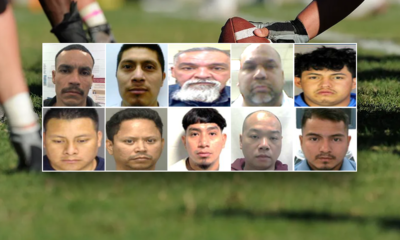INTERNACIONAL
Boasberg grills DOJ over remarks from Trump and Noem, floats moving migrants to Gitmo in action-packed hearing
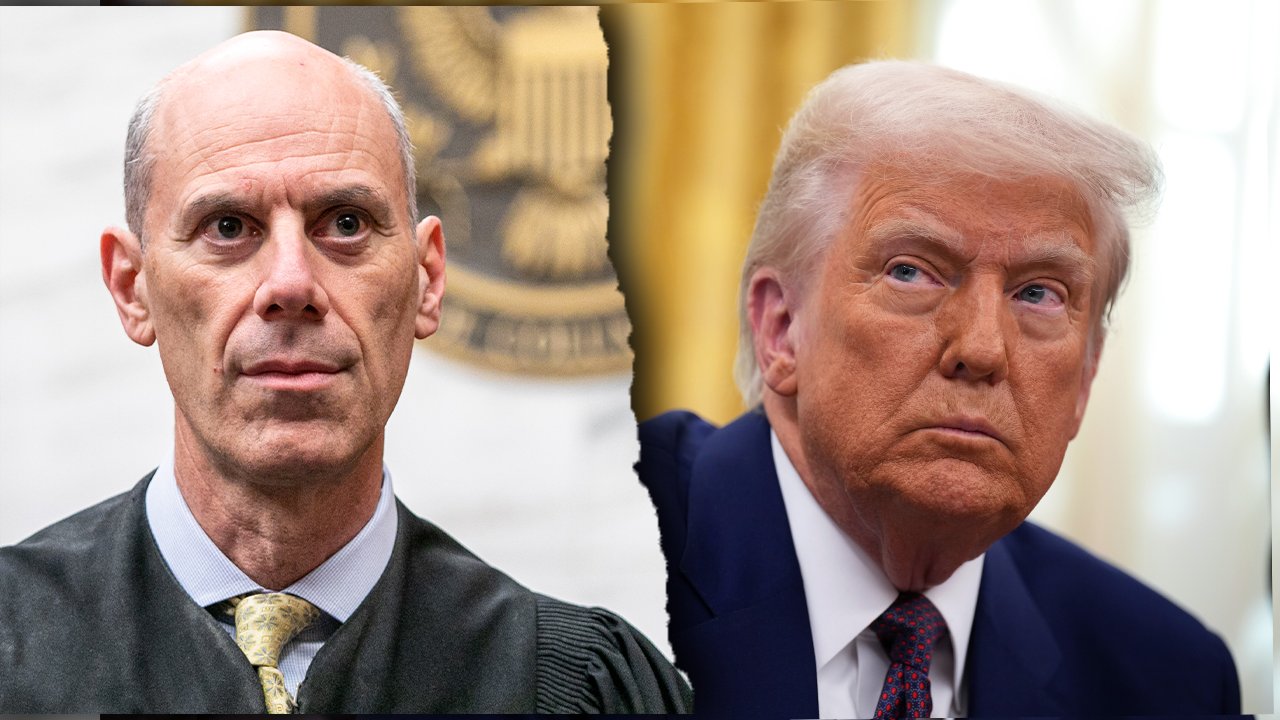
U.S. District Judge James Boasberg pressed Justice Department lawyers Wednesday evening over public comments President Donald Trump and other Cabinet officials made about deportation proceedings under the Alien Enemies Act and floated the idea of moving some migrants to Guantánamo Bay.
During the hearing, Boasberg specifically pressed Justice Department lawyers about statements made by Trump and DHS Secretary Kristi Noem about CECOT, the maximum-security prison in El Salvador where the U.S. has deported hundreds of migrants, and the White House’s ability to secure someone’s release.
He asked specifically about Trump’s remarks in an interview with ABC News, in which Trump told ABC News he «could» secure the return of Kilmar Abrego Garcia, a Salvadoran and alleged gang member, back to the U.S. from El Salvador if he chose to.
«Is the president not telling the truth?» Boasberg asked Justice Department lawyer Abhishek Kambli. «Or could he secure his release?»
WHO IS JAMES BOASBERG, THE US JUDGE AT THE CENTER OF TRUMP’S DEPORTATION EFFORTS?
The question goes to the heart of whether El Salvador has custody of the deported migrants, a major question at the heart of the case.
Another key part of the hearing focused on the lawfulness of the Alien Enemies Act proclamation used by Trump to quickly deport migrants from the U.S. to the Salvadoran prison.
Boasberg asserted that the Supreme Court had not, in fact, upheld Trump’s use of the Alien Enemies Act to deport certain migrants, quoting from the high court’s ruling before noting to Justice Department lawyers that the Supreme Court «did not decide one way or another» on the validity of Trump’s proclamation.
Boasberg floated the idea of moving the migrants detained at CECOT to the U.S. Guantánamo Bay detention center, where the government could then ascertain if they are members of Tren de Aragua, the violent Venezuelan gang the Trump administration said prompted its use of the Alien Enemies Act.
He also grilled Kambli over Noem’s comment that CECOT is «one of the tools in our toolkit» the U.S. «can use» against individuals who commit crimes against the American people, and comments from White House press secretary Karoline Leavitt that the U.S. has provided $6 million to El Salvador to house migrants at the CECOT prison.
In response, Kambli said these remarks sometimes «lack nuance» and described the payments to El Salvador as «grants.»
U.S. District Judge James Boasberg and President Donald Trump (Getty Images)
The fast-paced hearing was marked by sharp lines of questioning from Boasberg, both over the claims made by Trump officials and whether the early wave of migrants deported to CECOT received any due process or prior notice before they were deported to El Salvador.
Boasberg asked Lee Gelernt, an ACLU lawyer arguing for the plaintiffs, if they had any representations on whether the first class of migrants deported to CECOT under the Alien Enemies Act had prior notice or received any due process protections.
Gelernt reiterated that the first group of migrants deported received no prior notice, telling the court the individuals had received declarations from the government as they were being loaded onto buses on the way to the airport from which they would be sent to the Salvadoran prison.
TRUMP ADMIN SEEKS EMERGENCY RELIEF OF BOASBERG CONTEMPT THREAT
Gelernt also noted that the notices handed to migrants said «NO REVIEW IS AVAILABLE» in English at the top.
That phrase has since been removed from the declarations but has not been replaced with any details on eligibility for review or habeas relief.
«They got some notice,» Kambli told Boasberg, notring he was not sure of the «precise contours of that.»
«If it wasn’t even 12 hours, you’re not going to say that they got due process,» Boasberg fired back.
Boasberg ended the hearing by telling both parties he planned to issue an order Thursday explaining next steps and giving the government until Friday to file any further declarations. From there, plaintiffs will have until Monday to review discovery, including requests for additional information.
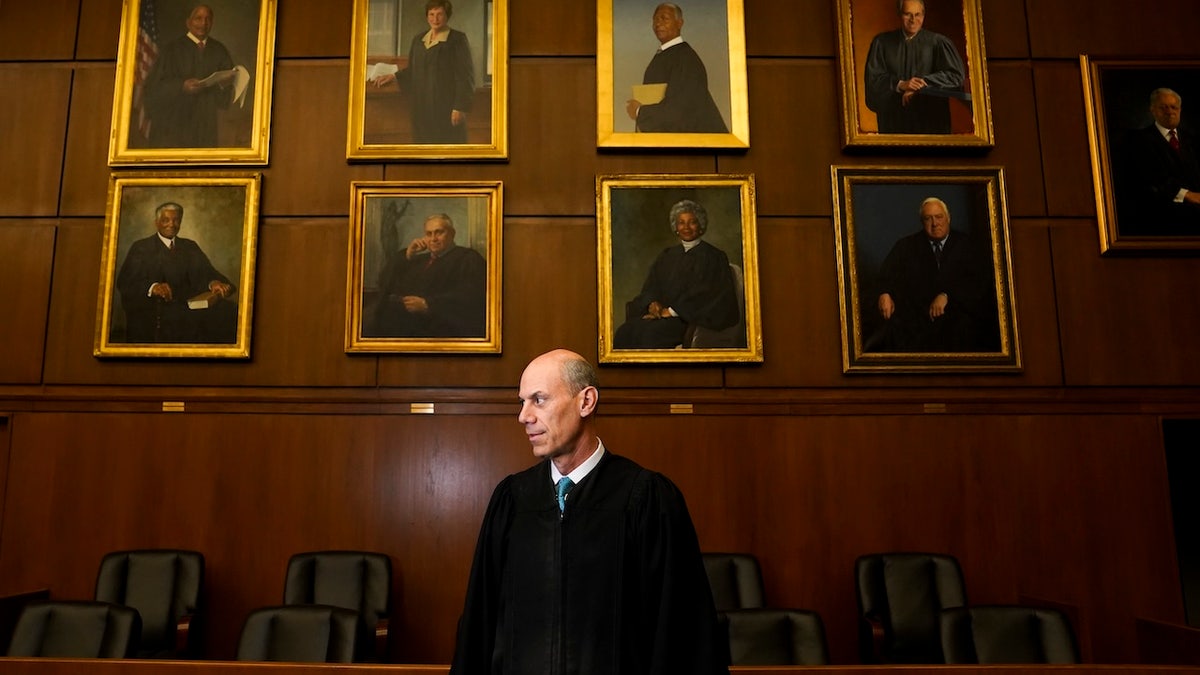
Judge James E. Boasberg at E. Barrett Prettyman Federal Courthouse in Washington, D.C. (Carolyn Van Houten/Washington Post via Getty)
Trump officials have sought to portray Boasberg, a high-profile judge in D.C., as the face of judicial overreach, and today’s hearing could put him back in their crosshairs.
Unlike the previous lawsuit heard by Boasberg in March, which sought to temporarily block Trump’s use of the Alien Enemies Act to swiftly deport certain U.S. migrants, the plaintiffs are asking the court to hear a larger request for more lasting relief.
The preliminary injunction was filed as a class and seeks to protect two classes of migrants — detainees already removed from the U.S. to the infamous Salvadoran prison and those still detained on U.S. soil at risk of imminent removal.
The plaintiffs are seeking broader and more lasting relief for two groups of individuals at risk of what they argue is «grave and irreparable harm» under the Alien Enemies Act.
For U.S. detainees who could be removed under the law, plaintiffs asked for an order blocking their removal under the AEA and requiring the Trump administration to provide them at least 30 days notice before any planned removals, notice they said would be sufficient to allow them to challenge their removals in U.S. court.
Migrants who were already deported to CECOT could face a trickier path to relief.
TRUMP DEMANDS SUPREME COURT STEP IN AFTER FEDERAL JUDGES BLOCK HIS AGENDA: ‘THESE PEOPLE ARE LUNATICS’

President Donald Trump speaks during a FIFA task force meeting in the East Room of the White House May 6, 2025. (AP Photo/Mark Schiefelbein)
The plaintiffs asked Boasberg in their amended request to order the Trump administration to not only facilitate the return of already deported migrants, but to take «all reasonable steps» to do so.
This could include requiring the administration to request any contractors or agents in El Salvador to transfer the individuals from CECOT and into the «physical custody» of the U.S., they said.
It’s unclear whether the Trump administration will take any steps to comply with the order should Boasberg move to grant the injunctive relief plaintiffs are seeking. If their responses are any indication, compliance in the near term seems unlikely.
4 MORE DEMS TRAVEL TO EL SALVADOR TO PUSH FOR ABREGO GARCIA’S RETURN TO US
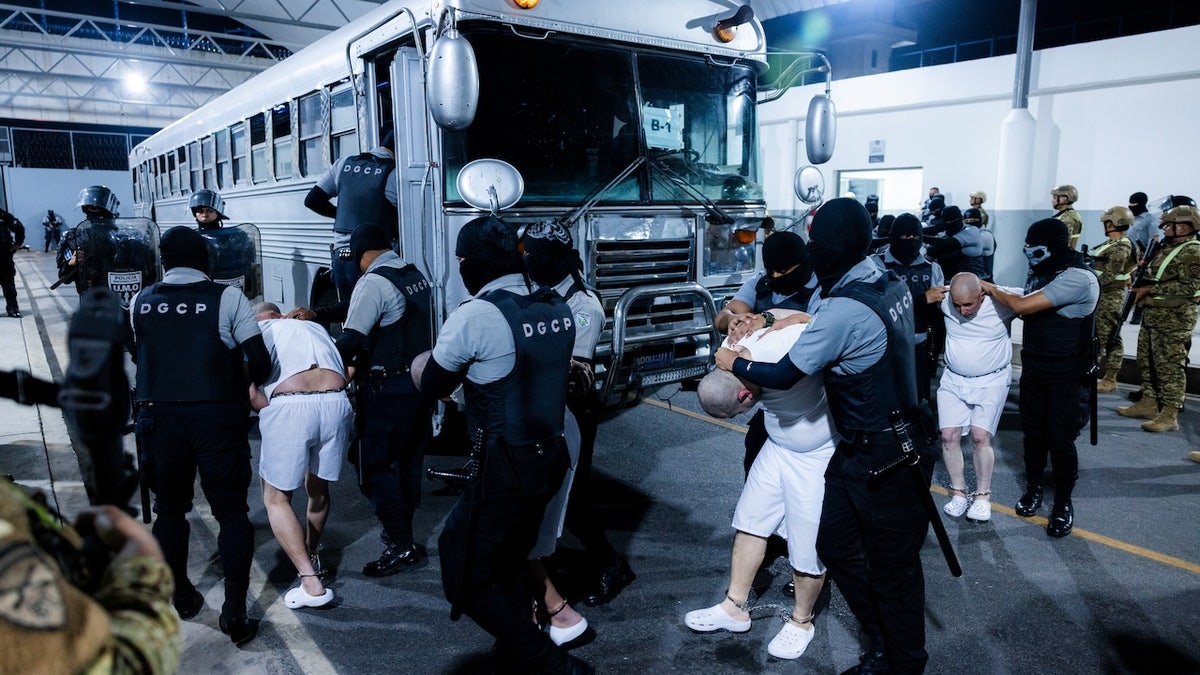
Alleged gang members in El Salvador after being deported from the U.S. March 31, 2025. (El Salvador Press Presidency Office/Anadolu via Getty)
The hearing comes as the Trump administration has grown increasingly defiant in the face of court orders to return migrants from CECOT back to the U.S., including two migrants erroneously deported to the maximum security prison in March and ordered back to the U.S. by two separate federal judges.
The administration has refused to return them. So far, the Trump administration has not said whether it has returned any migrants deported from the U.S. to CECOT under the law.
And the identities of these individuals can be difficult to track. To date, the Trump administration has not released a list of the names of individuals it has deported to El Salvador under the Alien Enemies Act‚ and the Salvadoran government has also shielded their identities from public disclosure.
The administration’s growing resistance on the issue has sparked fresh concern from Trump critics and some court observers who have cited fears the administration could be testing boundaries on executive branch authorities.
CLICK HERE TO GET THE FOX NEWS APP
The plaintiffs also cited fears of harm to the migrants.
They said in their filing that, absent injunctive relief, the Trump administration «will be free to send hundreds more individuals to the notorious Salvadoran prison, where they may be held incommunicado for the rest of their lives.»
Federal Courts,Tren de Aragua,Illegal Immigrants,Elections,Donald Trump,Immigration,Latin America
INTERNACIONAL
BID proyecta más de US$1,000 millones en inversiones para Panamá en 2026
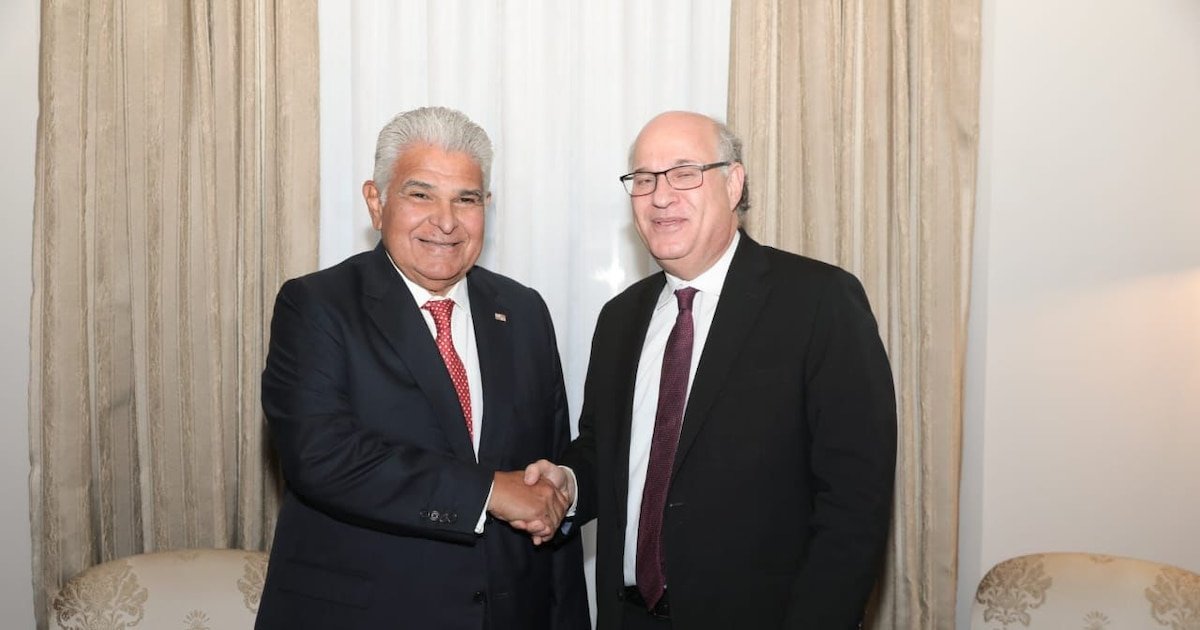
Panamá y el Banco Interamericano de Desarrollo (BID) reforzaron su agenda de cooperación de cara a 2026 tras una reunión sostenida entre el presidente José Raúl Mulino y el presidente del Grupo BID, Ilan Goldfajn, en el marco de la 39ª Reunión de Gobernadores del Istmo Centroamericano y República Dominicana.
El encuentro estuvo centrado en estabilidad macroeconómica, integración regional y crecimiento sostenible, en un momento en que Panamá busca consolidar su atractivo para la inversión internacional.
Durante la reunión, ambas partes coincidieron en que la confianza de los mercados, la disciplina fiscal y el fortalecimiento institucional son pilares clave para sostener el crecimiento económico.
En ese contexto, el Grupo BID reiteró su disposición a respaldar proyectos estratégicos mediante financiamiento complementario, incluyendo esquemas de asociaciones público-privadas y garantías para movilizar capital privado hacia sectores prioritarios.
Uno de los anuncios más relevantes se produjo tras el encuentro, cuando Goldfajn confirmó que el programa del BID para Panamá en 2026 superará los US$1.000 millones entre operaciones públicas y privadas.

La cifra incluye recursos para infraestructura, servicios públicos, modernización del Estado y apoyo al sector productivo, consolidando al organismo como uno de los principales socios financieros del país.
El propio presidente del BID destacó este compromiso en un mensaje difundido en redes sociales, en el que subrayó que el paquete de financiamiento busca respaldar las prioridades estratégicas del Gobierno panameño.
Entre ellas figuran el acercamiento a la OCDE, la mejora del clima de negocios y el impulso a proyectos regionales bajo el programa “América en el Centro”, orientado a reducir costos logísticos y fortalecer la competitividad.
En materia educativa, Mulino invitó formalmente al BID a participar en el proceso de modernización del sistema educativo, con énfasis en tecnología y digitalización.
La propuesta fue acogida favorablemente, y el organismo anunció que trabaja junto con Google en un programa regional que contempla 60.000 becas, del cual Panamá figura entre los principales beneficiarios, con miras a cerrar brechas en habilidades digitales.
La agenda abordó también proyectos estructurales como la interconexión eléctrica con Colombia, el desarrollo del centro logístico de Puerto Armuelles, obras de agua potable y saneamiento, y planes de integración regional. Goldfajn informó, además, que el BID puso a disposición asistencia técnica para fortalecer la gobernanza, la transparencia y la adopción de estándares internacionales en la gestión pública.
El respaldo del organismo se refleja en una amplia cartera de proyectos financiados en Panamá en los últimos años.

Entre ellos figuran el apoyo al desarrollo del Metro de Panamá y el cable aéreo de San Miguelito, programas de saneamiento en el área metropolitana, iniciativas de acceso universal a la energía, proyectos ambientales en la Bahía de Parita, y planes de fortalecimiento para microempresarios y pueblos indígenas.
Estas operaciones han abarcado sectores como transporte, agua, energía, inclusión social y modernización institucional.
En el ámbito fiscal, los datos oficiales muestran que el BID se mantiene como uno de los principales acreedores multilaterales del país. Al cierre de 2025, el saldo de la deuda con el organismo superaba los US$4.400 millones, dentro de un componente multilateral cercano a los US$9.700 millones.
Esta relación financiera convierte al BID en un actor clave tanto en el financiamiento del desarrollo como en la sostenibilidad de las cuentas públicas.
Desde el Ejecutivo, Mulino ha defendido que la estrategia con el BID no se limita al endeudamiento, sino que apunta a generar retornos económicos y sociales mediante proyectos productivos, mejoras en servicios básicos y fortalecimiento institucional.
El mandatario ha insistido en que los recursos deben traducirse en empleo, competitividad y mayor inclusión, evitando que se conviertan en una carga estructural para las finanzas públicas.

En el plano regional, Goldfajn resaltó que la elección de Panamá como sede del encuentro de ministros de Finanzas y autoridades económicas refleja su papel como articulador regional. Según el BID, el país se perfila como un eje estratégico para impulsar soluciones conjuntas en logística, energía, comercio e infraestructura, en un entorno marcado por la volatilidad global y los desafíos geopolíticos.
Los ministros de Economía y Hacienda de Centroamérica se darán cita este martes en Ciudad de Panamá en el marco de la 39ª Reunión de Gobernadores del Istmo Centroamericano, Panamá y República Dominicana, organizada por el Banco Interamericano de Desarrollo (BID).
El encuentro tendrá como sede el Centro de Convenciones de Panamá, ubicado a orillas del Canal, y reunirá a autoridades responsables de las políticas fiscales, financieras y de desarrollo de la región.
Entre los asistentes confirmados figuran el presidente José Raúl Mulino, el ministro de Economía y Finanzas, Felipe Chapman, y sus homólogos de Costa Rica, El Salvador, Guatemala y Honduras, además de presidentes de bancos centrales y altos funcionarios del área económica.
La agenda contempla discusiones sobre productividad, integración regional, finanzas públicas y adaptación al cambio climático, en un contexto de presiones fiscales y desaceleración en varios países.
También participará el presidente del BID, Ilan Goldfajn, junto a representantes de BID Invest y BID Lab, con el objetivo de articular iniciativas conjuntas entre el sector público y privado.
Las autoridades regionales prevén que este foro sirva para coordinar estrategias comunes, atraer inversión internacional y fortalecer la cooperación financiera, en momentos en que Panamá busca consolidarse como plataforma de diálogo económico y centro logístico del istmo.
corresponsal:Desde Panamá
INTERNACIONAL
Iran draws missile red line as analysts warn Tehran is stalling US talks

NEWYou can now listen to Fox News articles!
Iranian Foreign Minister Abbas Araghchi said his country would not negotiate on its ballistic missile program, rejecting a core U.S. demand and further dimming prospects for a breakthrough deal.
He again warned in an interview with Al Jazeera that Tehran, Iran, would target U.S. bases in the Middle East if provoked, calling Iran’s missile program «never negotiable.»
The warnings came as U.S. and Iranian negotiators met in early February in Oman, even as Washington continued to build up military forces across the region — a posture U.S. officials say is meant to deter further escalation but which analysts argue also underscores how far apart the two sides remain.
Despite the imbalance in military power, analysts say Iran believes it can withstand U.S. pressure by signaling greater resolve — and by betting that Washington’s appetite for war is limited.
TRUMP SAYS IRAN ALREADY HAS US TERMS AS MILITARY STRIKE CLOCK TICKS
While the U.S. possesses overwhelming military capabilities, Defense Priorities analyst Rosemary Kelanic said Iran is relying on the logic of asymmetric conflict.
Iranian Foreign Minister Abbas Araghchi said his country would not negotiate on its ballistic missile program, rejecting a core U.S. demand and further dimming prospects for a breakthrough deal. (Vahid Salemi/AP)
«One country is much stronger, but the weaker country cares more,» Kelanic said. «And historically, the country that cares more often wins by outlasting the stronger one.»
«Iran is trying to signal resolve as strongly as it can, but it likely doubts U.S. resolve — because from Tehran’s perspective, the stakes for Iran are existential, while the stakes for the United States are not,» she added.
IRAN’S PRESIDENT STRIKES SOFTER TONE ON NUCLEAR TALKS AFTER TRUMP’S WARNING THAT ‘BAD THINGS WOULD HAPPEN’
Behnam Taleblu, a senior fellow at the Foundation for Defense of Democracies, said Tehran’s primary leverage is its ability to threaten wider regional instability, even if it cannot win a prolonged conflict.
«The Islamic Republic’s leverage is the threat of a region-wide war,» Taleblu said, noting that while U.S. and Israeli defenses could intercept most attacks, «something will get hit.»
Iran buying time
Analysts across the spectrum agree that Iran is using negotiations less as a path to compromise than as a way to delay decisive action.
Oren Kessler, analyst at global consulting firm Wikistrat, said Iran is using talks to stabilize its position internally while avoiding concessions on core security issues.
«Both sides want a deal, but their red lines are very hard for the other side to overcome,» Kesler said. «The talks are going well in the sense that they’re happening, but they’re not really going anywhere.»
Taleblu echoed that assessment, arguing that Tehran is treating diplomacy as a shield rather than a solution.
«The regime is treating negotiations as a lifeline rather than a way to resolve the core problem,» he said.
Taleblu added that Iran’s leadership sees talks as a way to deter a strike in the short term, weaken domestic opposition in the medium term, and eventually secure sanctions relief to stabilize its economy.

In this frame grab from video obtained by the AP outside Iran, a masked demonstrator holds a picture of Iran’s Crown Prince Reza Pahlavi during a protest in Tehran, Iran, Jan. 9, 2026. (UGC via AP)
Secretary of State Marco Rubio has insisted that limits on Iran’s ballistic missiles must be part of any agreement to avoid military action.
«At the end of the day, the United States is prepared to engage, and has always been prepared to engage with Iran,» Rubio said in early February. «In order for talks to actually lead to something meaningful, they will have to include certain things, and that includes the range of their ballistic missiles. That includes their sponsorship of terrorist organizations across the region. That includes the nuclear program. And that includes the treatment of their own people.»
Anti-government protests beginning at the start of 2026 led to a brutal crackdown in Iran. The regime has admitted to 3,117 deaths linked to the demonstrations, though human rights groups and Iranian resistance organizations peg the death toll as much higher.
The U.S. also has demanded that Iran give up all enriched uranium stockpiles, which can be used for civilian energy at low levels but for nuclear weapons at higher concentrations.
Araghchi told Al Jazeera that Iran is willing to negotiate on nuclear issues but insisted enrichment is an «inalienable right» that «must continue.»

Iran’s Supreme Leader, Ayatollah Ali Khamenei pictured sitting next to senior military official in Iran. (Getty Images)
«We are ready to reach a reassuring agreement on enrichment,» he said. «The Iranian nuclear case will only be resolved through negotiations.»
Iran’s atomic chief said Monday that Tehran would consider diluting its 60% enriched uranium — a level close to weapons-grade — but only in exchange for the lifting of all sanctions.
As negotiations unfolded, the U.S. continued to expand its military footprint in the Middle East.
In late January, the U.S. dispatched a carrier strike group centered on the USS Abraham Lincoln to the North Arabian Sea, accompanied by multiple destroyers and other naval assets. Additional F-15E strike aircraft and air defense systems have also been repositioned at bases across the region, alongside thousands of U.S. troops.
Taleblu said the administration may be using diplomacy to buy time of its own.
CLICK HERE TO DOWNLOAD THE FOX NEWS APP
«The charitable interpretation is that the president is buying time — moving assets, strengthening missile defense, and preparing military options,» he said. «The less charitable interpretation is that the United States is taking Iran’s threats as highly credible and still chasing the optics of a deal.»
In 2025, five rounds of talks similarly stalled over U.S. demands that Iran abandon enrichment entirely — talks that ultimately collapsed into Operation Midnight Hammer, a U.S.-led bombing campaign against Iranian nuclear facilities.
iran,nuclear proliferation,ali khamenei,donald trump,marco rubio
INTERNACIONAL
El rey Carlos III le soltó la mano a su hermano Andrés por el caso Epstein y dijo que está «listo» para ayudar a la policía
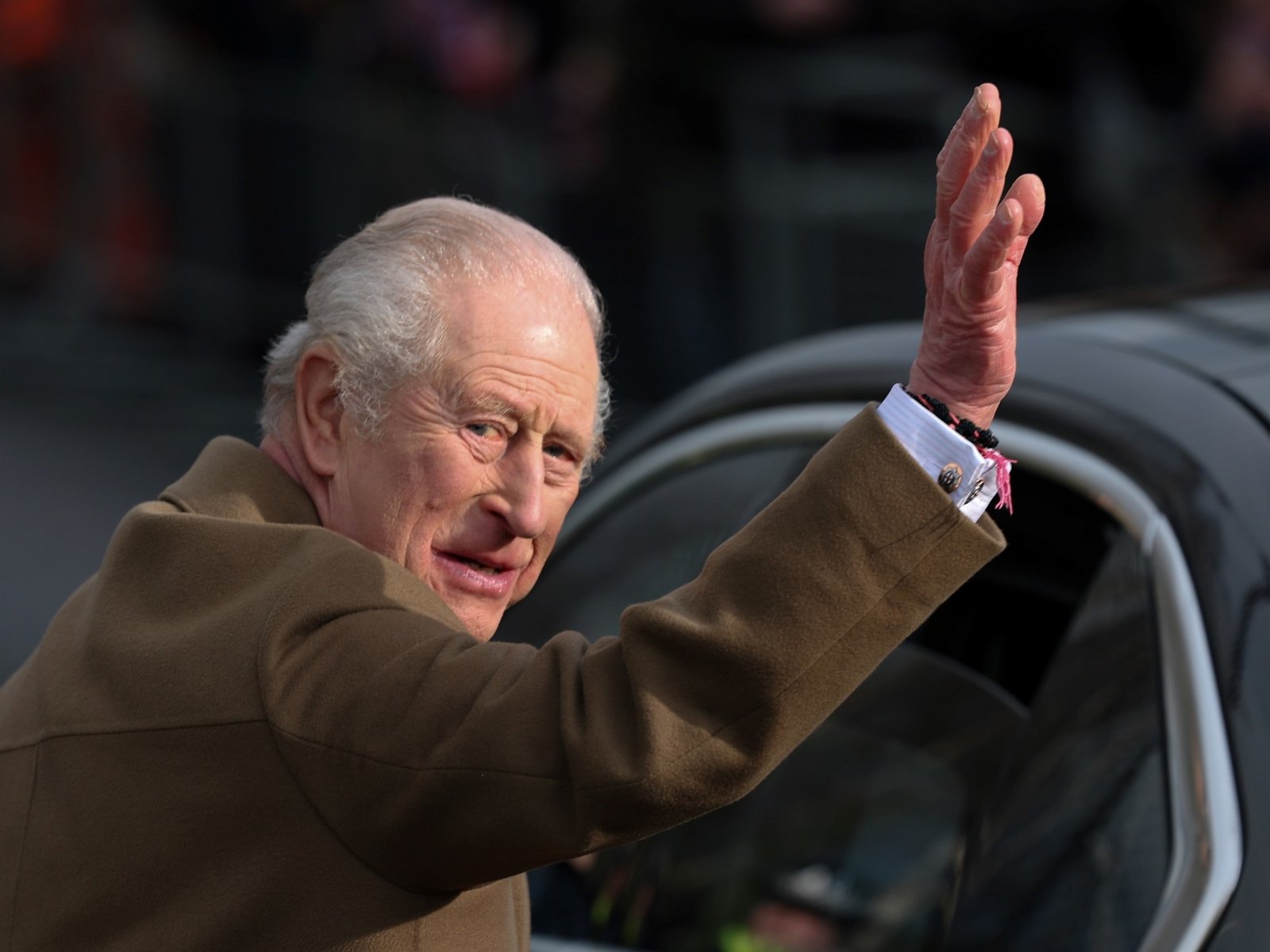
El rey Carlos III está «listo para ayudar» a la policía en las investigaciones para determinar si su hermano menor, Andrés, transmitió informaciones reservadas a Jeffrey Epstein cuando era enviado británico de Comercio, afirmó el palacio real este lunes.
«El rey ha dejado clara (…) su profunda preocupación por las acusaciones que siguen saliendo a la luz respecto a la conducta del señor (Andrés) Mountbatten-Windsor, afirmó el palacio en un comunicado.
Caso la policía solicite la ayuda del rey, «estamos listos a ayudar, como cabría esperar», señala la nota.
En este sentido, el Palacio de Buckingham comentó que, si bien corresponde al expríncipe Andrés abordar las acusaciones específicas que versan sobre su persona y el pedófilo Jeffrey Epstein, en caso de ser contactados por la policía de Thames Valley estarán «dispuestos» a colaborar con ellos..
«Como han declarado anteriormente, los pensamientos y la solidaridad de sus majestades están y estarán con las víctimas de cualquier forma de abuso», agregó el portavoz.
El mensaje en nombre del monarca británico llega horas después de que los príncipes de Gales, Guillermo y Catalina, expresasen por primera vez públicamente su «profunda preocupación» por las recientes revelaciones con respecto al caso.
También supone un paso más de Carlos III para tratar de desvincularse de su hermano Andrés, después de anunciar la retirada de todos sus títulos y honores, incluido el de príncipe, ante las constantes informaciones, correos electrónicos y fotografías que lo vinculan con la trama Epstein.
Que el goteo de revelaciones del caso Epstein está erosionando la imagen de la monarquía lo demuestra una imagen infrecuente como la registrada este lunes en una estación de tren en Lancashire (noroeste inglés), cuando el rey fue abucheado por un grupo de personas después de que alguien gritara: «¿Cuánto hace que sabías lo de Andrés?».
Andrés ha guardado silencio en estos diez fatídicos días en que su imagen ha quedado por los suelos, en sentido literal, tras conocerse las fotografías en las que aparece arrodillado a cuatro patas y descalzo sobre una mujer con el rostro velado a la que toca el estómago, contenidas en los archivos ‘liberados’ del caso Epstein.
A esas fotografías siguieron los mensajes en los que Epstein se coordinaba con él para ‘enviarle’ a una joven rusa de 26 años «bonita, inteligente y de fiar» a pasar la noche con él y a la que Esptein había prometido como ‘guinda’ una visita a tomar el té en el mismo Palacio de Buckingham, la sede simbólica de la monarquía británica.
Investigan al ex príncipe Andrés por haber compartido información oficial a Epstein
Este lunes la Policía británica informó que está «evaluando» si el ex príncipe Andrés compartió informes sensibles como antiguo enviado de comercio del Reino Unido con el pedófilo convicto Jeffrey Epstein. La Policía del llamado Valle del Támesis, a las afueras de Londres -donde reside Andrés-, confirmó que recibió un informe sobre esas supuestas actividades del antiguo duque de York y que son analizadas de acuerdo con «nuestros procedimientos establecidos.»
Según documentos difundidos en Estados Unidos, el ex príncipe compartió en 2010 y 2011 datos confidenciales de su trabajo como enviado de comercio con el financista y pedófilo.
Los correos muestran que Andrés, despojado por el rey de sus títulos nobiliarios el año pasado por sus vínculos con Epstein, le remitió detalles de sus viajes oficiales a Singapur, Vietnam y Hong Kong, así como informes de esas visitas elaborados por su asistente Amit Patel, poco después de recibirlos.
El director de Republic, el grupo que lucha por la abolición de la monarquía, Graham Smith, afirmó este lunes en su cuenta de X que denunció a Andrés a la Policía del Valle del Támesis, lo que parece estar en el origen de la actuación policial.
Dijo que lo denunció por «presunta mala conducta en un cargo público» y por «violación» de secretos oficiales.
Andrés también envió a Epstein, fallecido en prisión en 2019 mientras esperaba juicio por tráfico de menores, datos sobre oportunidades de inversión en Afganistán, que estarían supervisadas por las fuerzas británicas y financiadas por el Gobierno de Londres.
Además de que Virginia Giuffre -la joven reclutada y abusada por Epstein- acusó a Andrés de haberse acostado con ella en tres ocasiones cuando ella era menor, hace una semana los medios divulgaron una foto en la que se ve al ex príncipe con una segunda mujer, a la que toca mientras ella está tumbada en el suelo.
Con información de agencias

 ECONOMIA2 días ago
ECONOMIA2 días agoEl sector industrial advierte que la apertura económica exige eliminar las distorsiones internas

 CHIMENTOS3 días ago
CHIMENTOS3 días agoMirtha Legrand se quebró desconsolada al hablar de la renuncia de Jimena Monteverde a su mesaza

 DEPORTE3 días ago
DEPORTE3 días agoCentral Córdoba vs. Unión: formaciones, hora y dónde ver por tv





